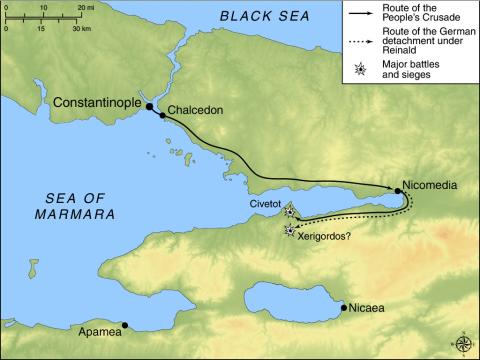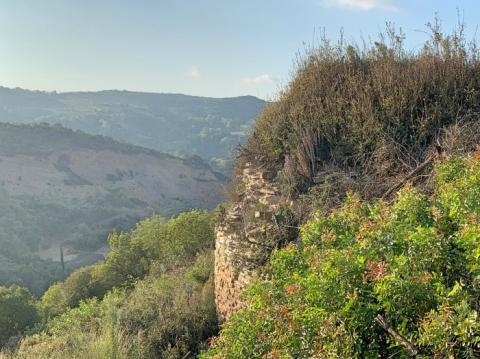The People's Crusade
[1.2.3] Et intrāvērunt in Rōmāniam et per quāttuor diēs iērunt ultrā Nīcēnam urbem invēnēruntque quoddam castrum cui nōmen Exerogorgō, quod erat vacuum gente. Et apprehendērunt illud, in quā invēnērunt satis frūmentī et vīnī et carnis, et omnium bonōrum abundantiam. Audientēs itaque Turcī quod Chrīstiānī essent in castrō vēnērunt obsīdēre illud. Ante portam castrī erat puteus, et ad pedem castrī fōns vīvus, iuxtā quem exiit Rainaldus īnsidiārī Turcōs. Venientēs vērō Turcī in fēstō sānctī Michahēlis, invēnērunt Rainaldum et quī cum eō erant, occīdēruntque Turcī multōs ex eīs. Aliī fūgērunt in castrum.
notes
vocabulary
ML usages common in the Gesta Francorum
castrum, –ī, n.: fort, stronghold, fortified village (ML)
frūmentum –ī, n: grain
puteus –ī, m.: well
iuxtā: (prep. + acc.) beside, next to
insidior (1): to ambush, attack (see OLD 3)


